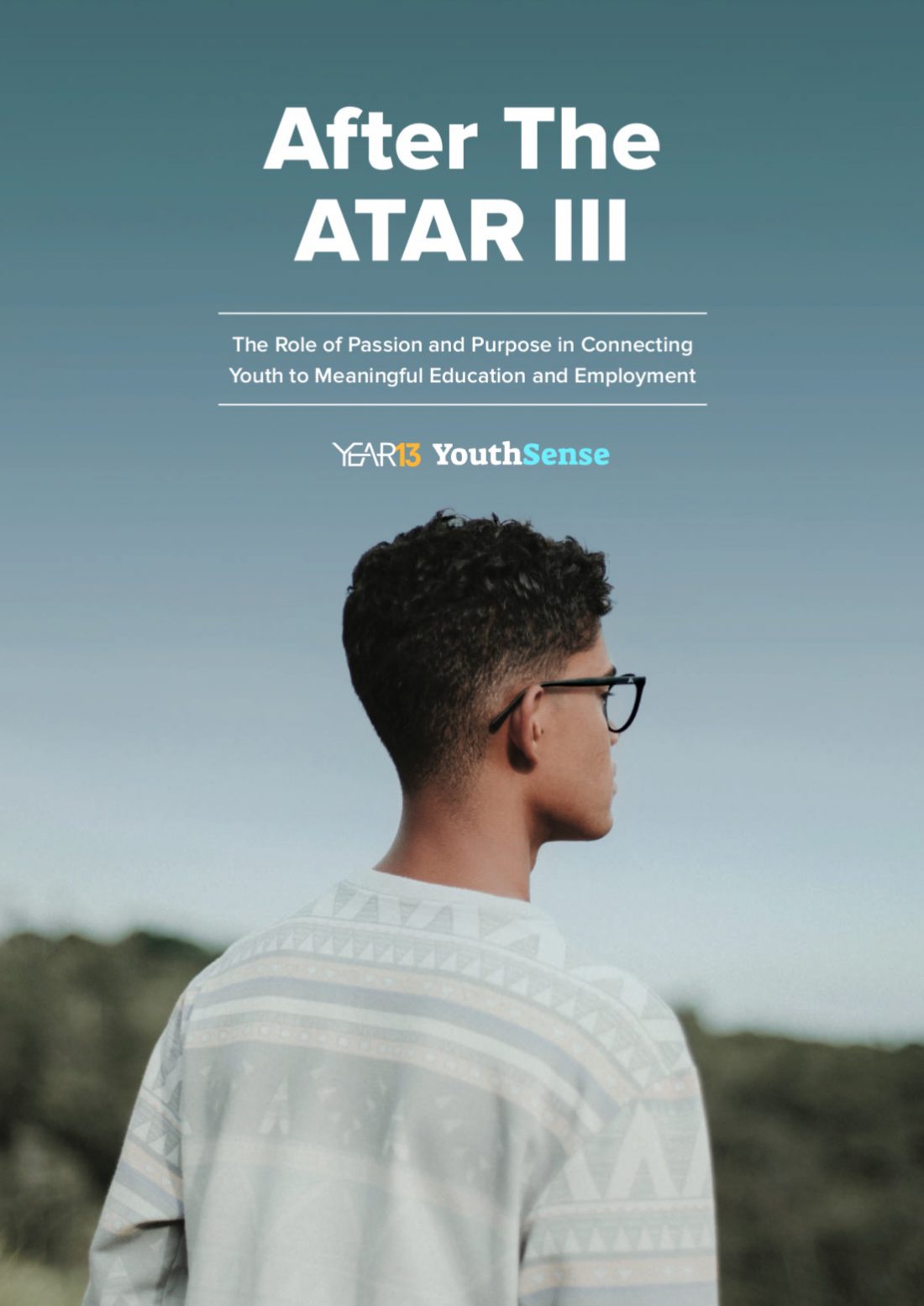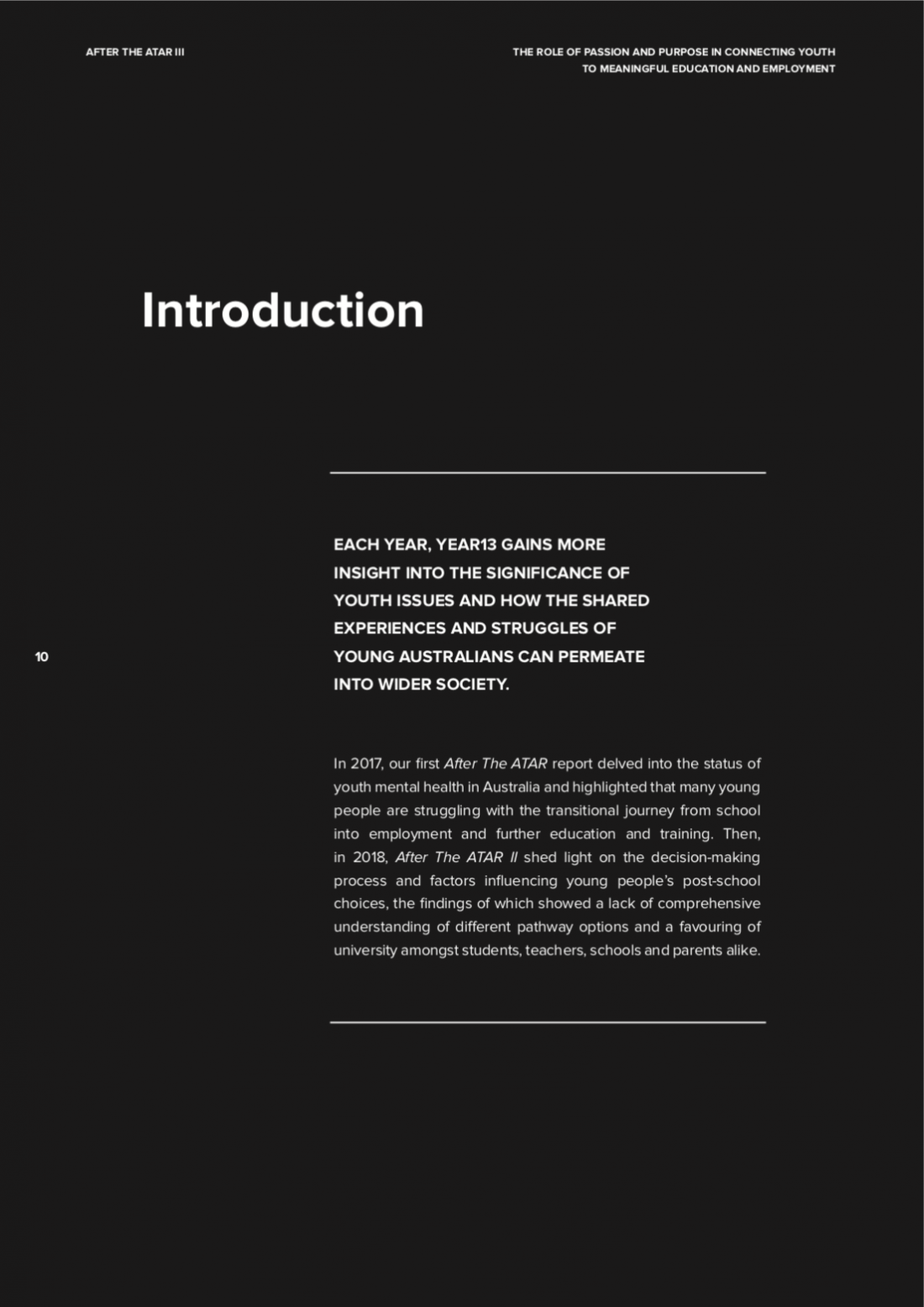
It’s always been a source of pride being the first in the family to don a cap and a gown.
But these days it’s starting to seem like everyone is wearing a cap and a gown – even when they don’t really want to. Getting into university can now often feel like more of a default option for graduating high schoolers than a monumental achievement to crack the champagne over.
Australians are now pursuing university qualifications in record numbers, however, job prospects for many graduates remain up in the air. They can often take months or years to get into a job where they can flex their qualifications. Students are also dropping out or changing degrees more than ever before.
One way to ease the pain is to promote other options like TAFE and apprenticeships since everyone simply isn’t built for long hours in libraries and lecture halls. However, we also need to accept that young people will continue choosing university and for a lot of them, this really is the right pathway.
Knowing this we’ve undertaken research and asked our Year13 audience about their experience transitioning from high school to the real world. We’ve discovered what’s on their mind during this time, what influences their decision-making and the things that matter most.
These insights have helped us find areas where universities can improve their communication and youth engagement strategies. Check out the stats below.
1. 20% of first-year university students drop out each year
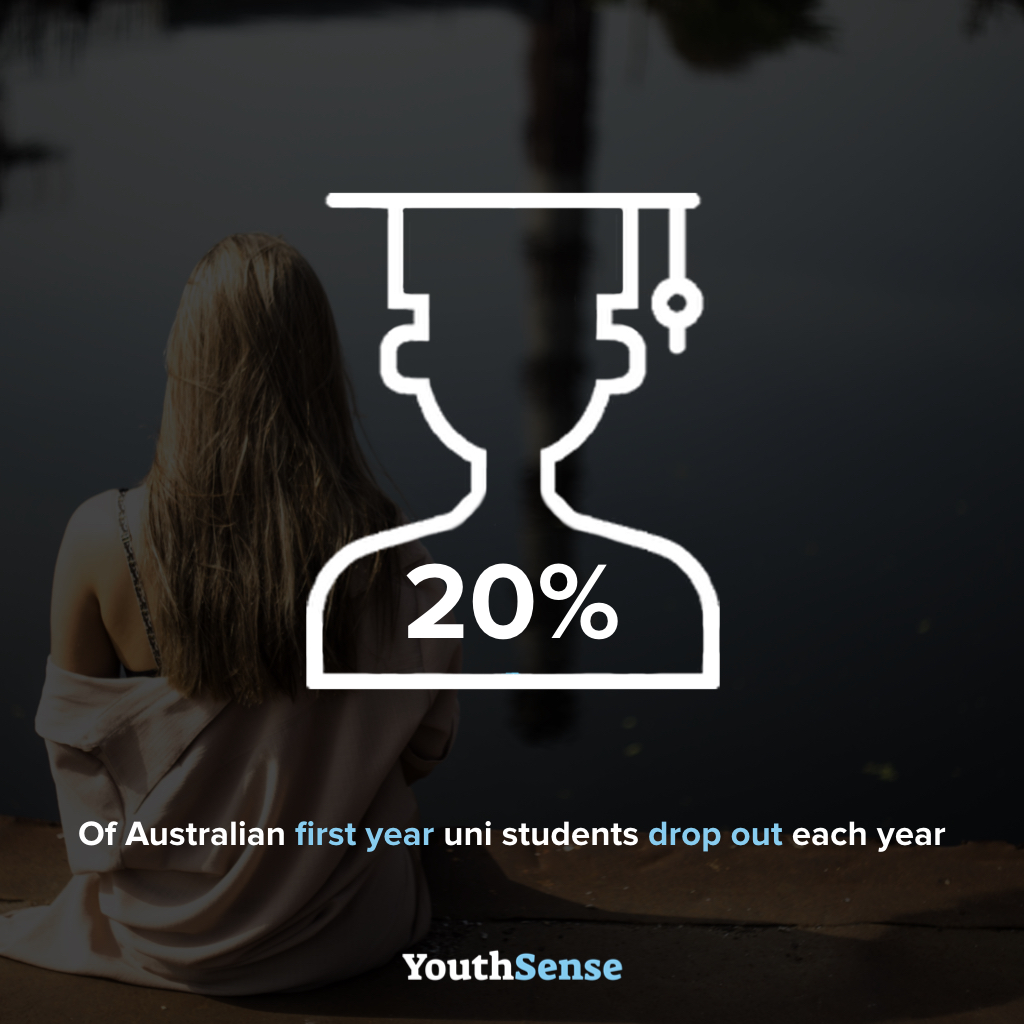
On top of 1 in 5 students leaving their degrees in their first year, we’ve found that 62% consider dropping out at some point. The biggest reason for this is because they ‘do not know what they want to do’, with 25% citing this as the reason behind their consideration.
In our free university report Here Comes The Drop we show how a clear communications strategy around university course and campus offerings can help better inform and guide students and improve retention rates.
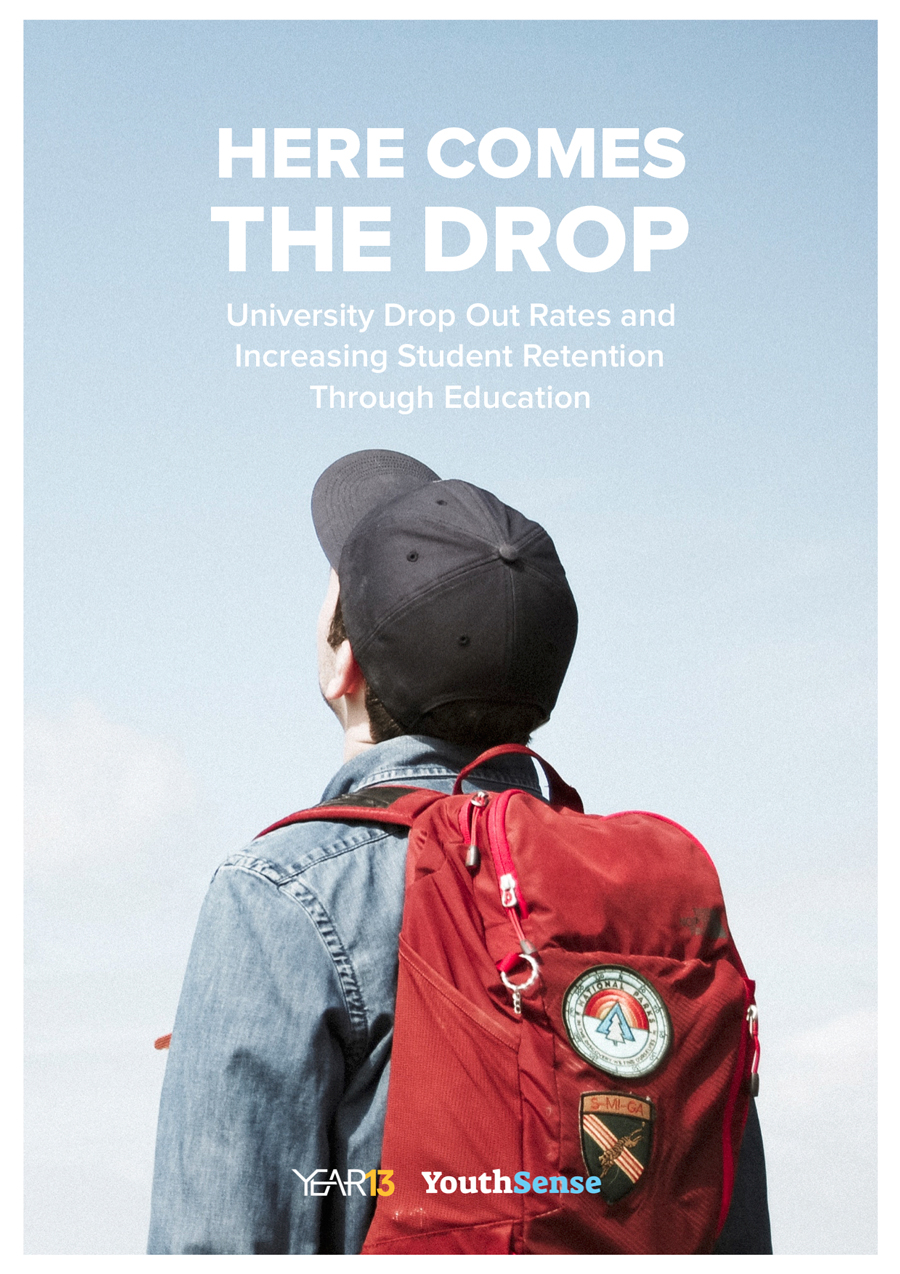

This kind of communication lets young people make informed choices about their post-school education. By doing so, students are more stable in their decision and less likely to dropout.
2. 79% of students chose their university based on the specific course on offer
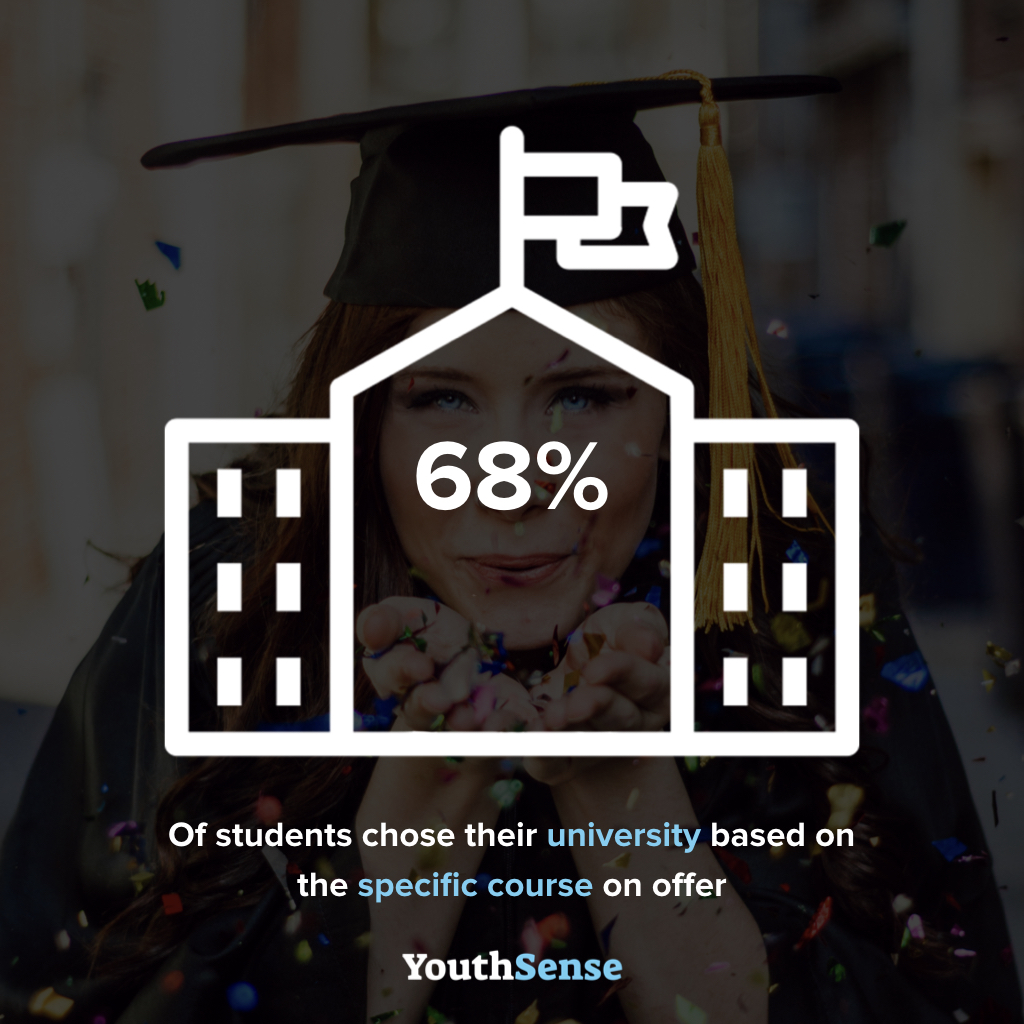
While we might have ideas about what young people look for in an education institution, our research shows that the number one factor – by a wide margin – is the actual course they’re studying. In comparison, 36% chose ‘proximity to home’, 32% chalked it up to the ‘prestige of uni’ and just 26% said it was due to the ‘student culture’.
You can forget about trying to flex your sandstone buildings – the most important thing universities should focus on is sharing the range of courses on offer and explaining them well.
3. 37% of Gen Z start seriously considering their post-school options in Year 10
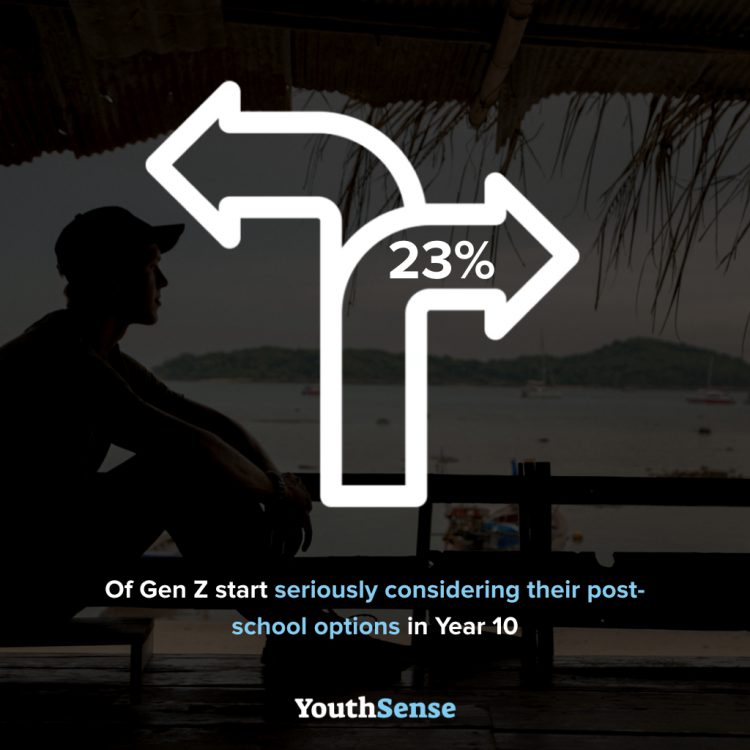
Think about it this way – you don’t decide what groceries you’re going to buy at the checkout line, do you? Now magnify the weight of this decision tenfold since for graduating students it’s not just their dinner at stake, it’s their future.
So to have an effective marketing strategy for your university, it’s important you’re not just targeting those in the final throes of exams. You need to start your messaging early and be present until they finally make that decision.
For the organisations we partner with at Year13, we achieve this with a combination of direct and indirect articles that ensure your university is being considered at every stage across students final years of school.
For more data and insights about Gen Z’s transition from school to further education, be sure to attend our Youth Engagement Summit 2020.
4. 25% of students think career expos/open days/university talks had the biggest impact on their post-school decisions
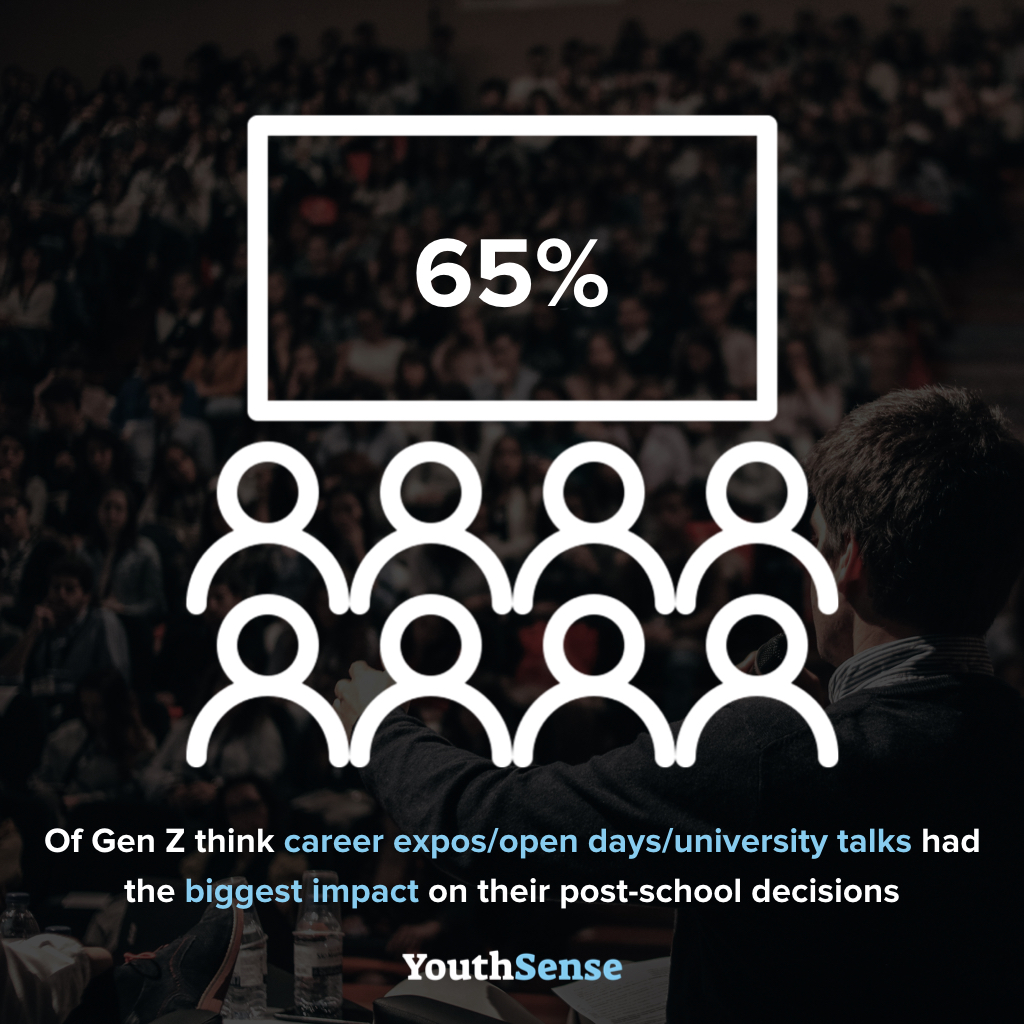
While digital communication is necessary to reach today’s youth, you can’t ignore the impact of presentations and real-world interaction. These events are an opportunity for universities to make a personal connection to prospective students, often being the thing to drive the final decision amongst fretting youth.
Our survey found these events were influential for more students than family and career advisors when deciding on what university to study at.
5. 76% of Gen Z want more personalised career advice
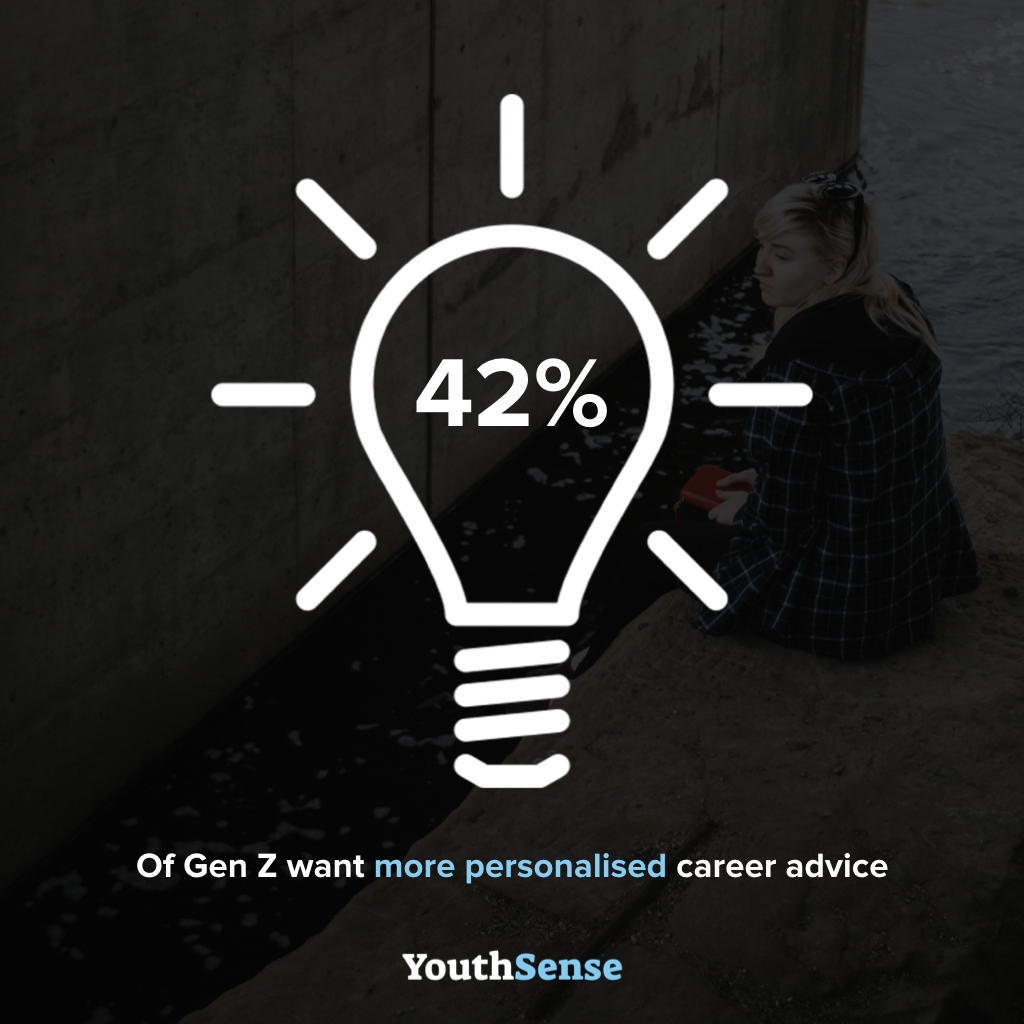
When we asked what would help them to receive better career advice this was the clear winner. It topped a list including access to mentors/industry professionals and an advisor they can relate to or connect with.
Separately, 77% of young Australians said one of the most important factors that influence their post-school education decision was career outcomes. It’s clear that students want more than just help picking a university course – they want to know how it will affect their career goals and aspirations.
6. 96% of young people believe enjoyment is the most important factor when considering their future career
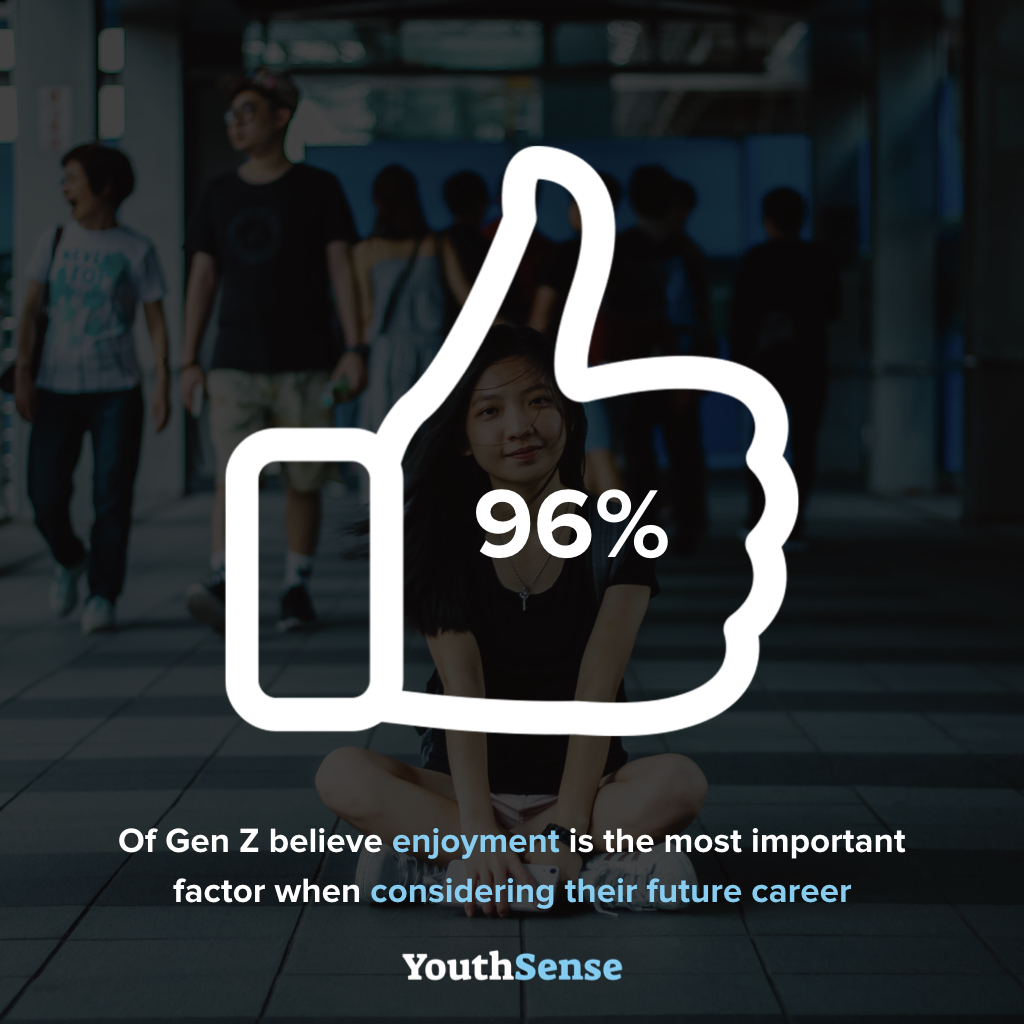
Gen Z like all young generations may be idealistic but they also put emphasis on financial and job security. However, we’ve found an overwhelming amount of young people still prioritise happiness over anything else when it comes to deciding their future career.
This insight cannot be ignored in university marketing. Include all the practical information when it comes to course information but there’s more to show. When talking about career outcomes, things like money and employability are important, but so is how the job can tap into their passions, provide purpose and give them the ability to create change in the world.
These messages are what young people are looking for online – and this happiness is what they’re searching for in their careers.
Grab your free copy of our After The ATAR III report for more data and unique insights about Gen Z.